124 CD / L. v. Beethoven: String Quartets · Vol. 1 of 4 op. 18 no. 1 – 6
Description
"[...] The Auryn Quartet have been working with TACET for years now. And those of you who are in the know will appreciate what that means:... the challenges for a quartet formation from playing Beethoven’s works mean picking up the tensions in the score and hanging on to them. The Auryn Quartet is not only equal to this task: they really seem to gain strength and fun from this field of tension. To be able to play at this level, the musicians constantly have to redefine the boundaries between respect for the other players and healthy self-interest. Playing in a quartet seems to have become a life elixir for the four Auryns: for twenty-three years now they have been rising to greater and greater heights. With the Quartets op. 18 by Beethoven they have definitely reached a peak. We await eagerly the promised continuation of their complete collection of Beethoven’s Quartets." (WDR Hörzeichen) There is no shortage of great and famous Beethoven Cycles, but there are no performances such as these. For me, this is now the set to beat. (Laurence Vittes)
11 reviews for 124 CD / L. v. Beethoven: String Quartets · Vol. 1 of 4 op. 18 no. 1 – 6
You must be logged in to post a review.

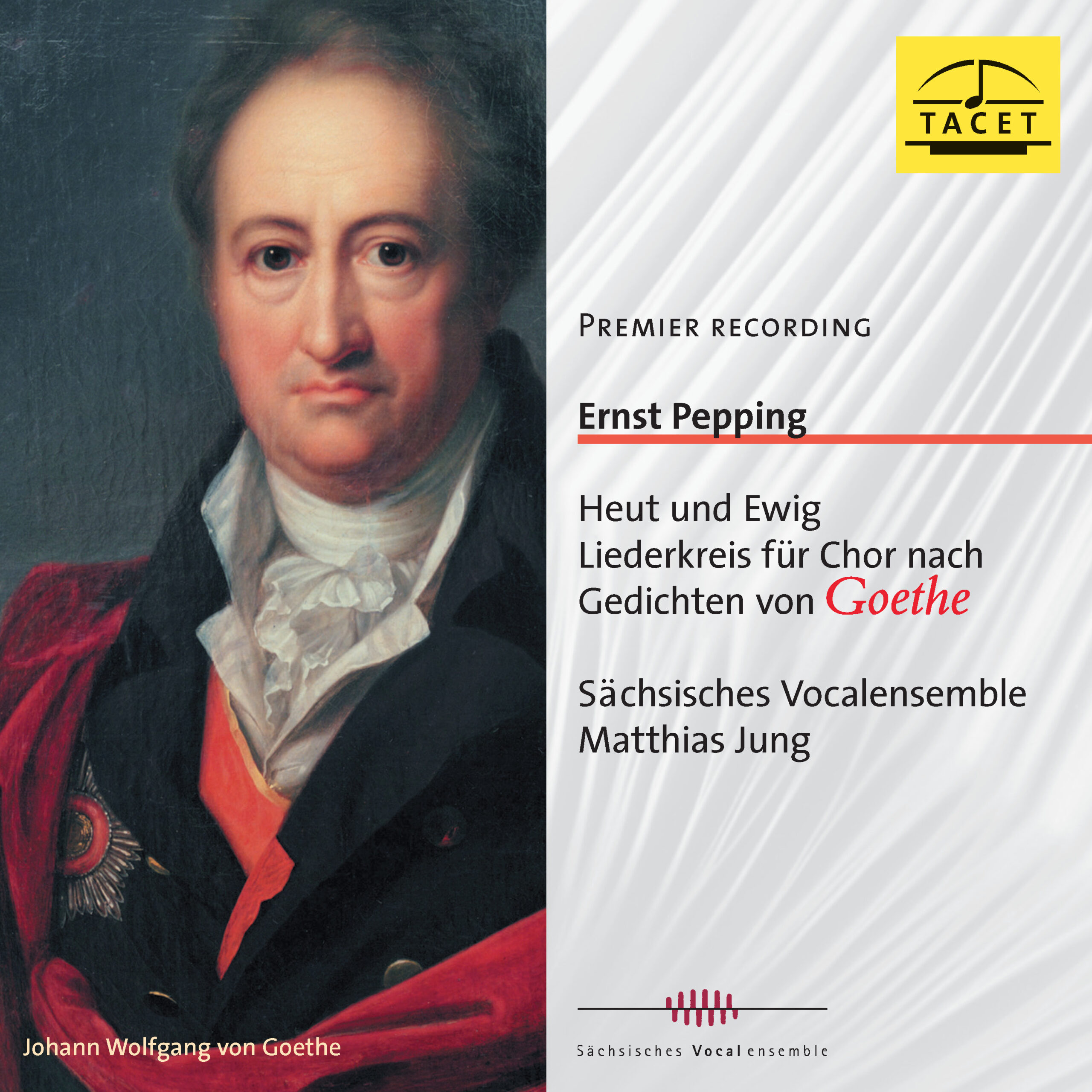
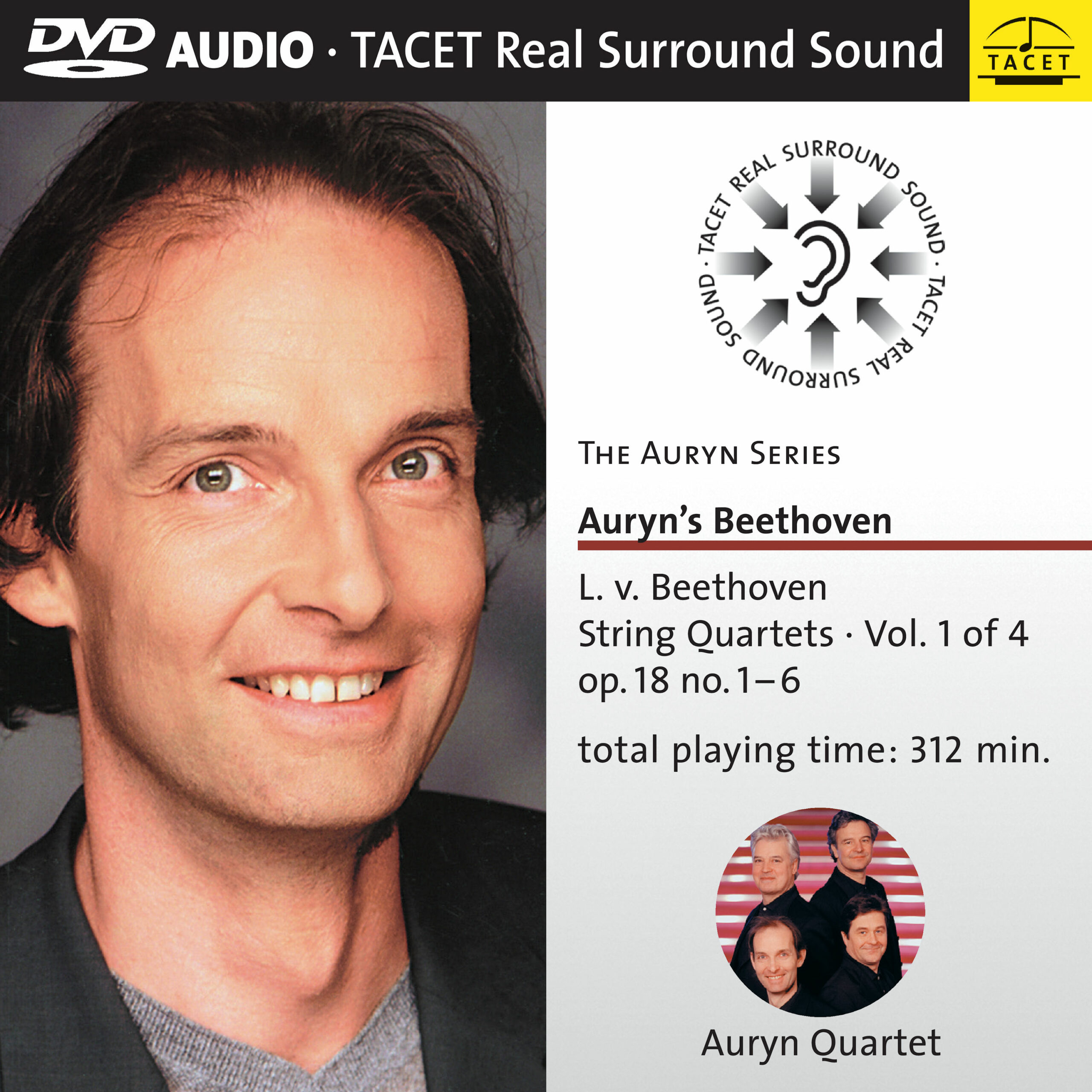
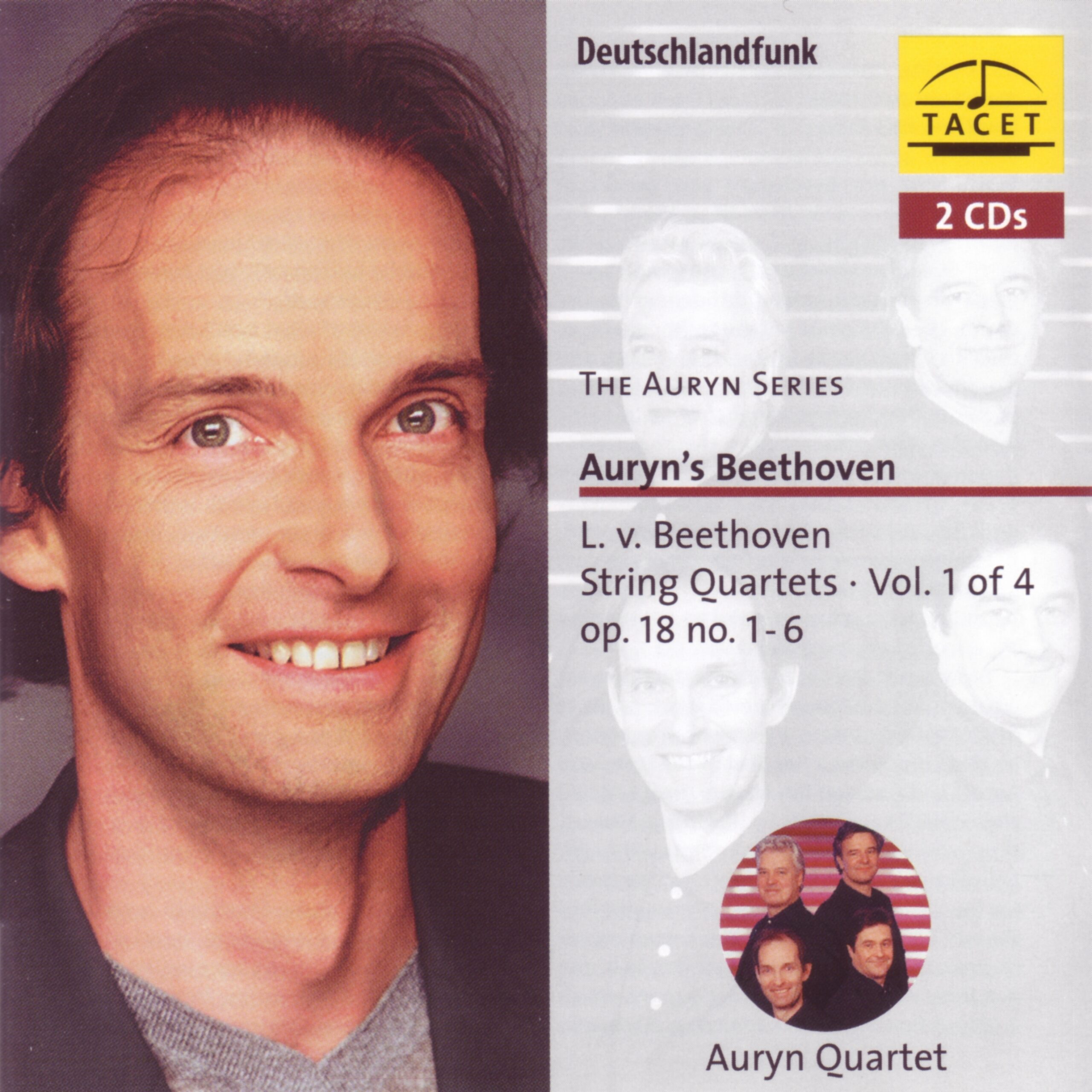
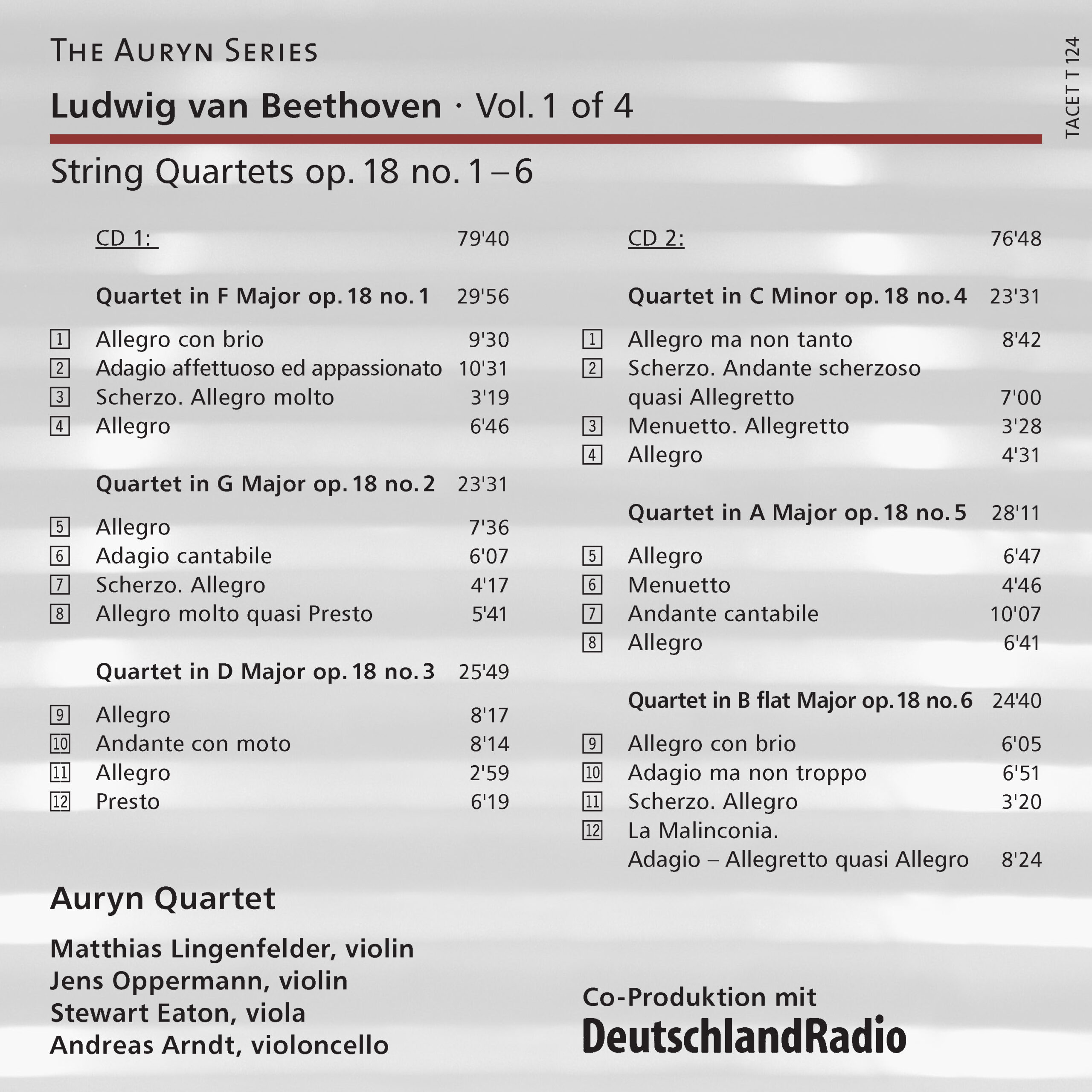



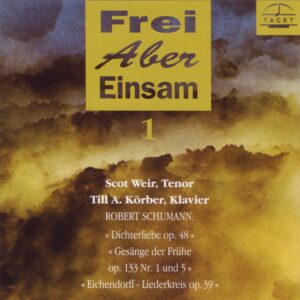
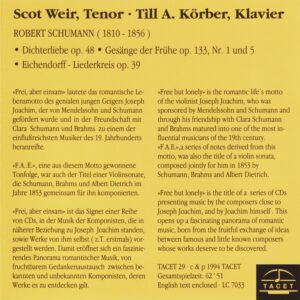

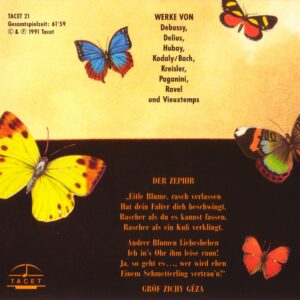
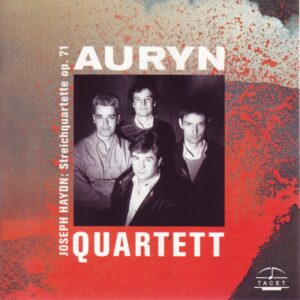


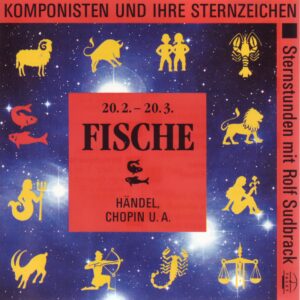

Classics Today –
If you collect Beethoven quartet recordings this is a happy time, with excellent new cycles from the Prazák Quartet (Praga), the Takacs (Decca), and this latest release, to name only three. As anyone who has heard the Auryn Quartet′s Schubert recordings will attest, this is an exceptional group, sporting all of the qualities of superior chamber ensembles: a keen sense of rhythm, the ability to phrase as one, and an engaging sense of the music′s ongoing dialog among the players. All of these virtues are very much in evidence here, combined with a dynamism and drive that Beethoven′s music particularly demands.
The fact that all six quartets fit onto two discs in their numerical order gives some indication of what to expect: fleet tempos, but also incisive accents and plenty of energy. In the B-flat quartet (No. 6) for example, the dialog between upper and lower strings in the first movement has real spontaneity, and in the finale the contrast between the melancholy opening and the main body of the movement, with its seasick chromatic inner lines, is especially sharp--the tempo (as Beethoven asks) closer to Allegro than Allegretto. The group perfectly judges the relationship between the curious inner movements of the C minor quartet (No. 4), catching the "scherzo" quality of its purported slow movement particularly well. They also know how to relax into Beethoven′s more effusive inspirations, clearly relishing the Adagio affetuoso ed appassionato of the F major quartet (No. 1), as well as the lovely, truly singing Andante cantabile in No. 5.
If there is any criticism, it has to be said that the quartet′s overall timbre is not as smooth as, say, the great Czech ensembles (Talich or Prazák), who manage just as much vitality while maintaining a more velvety melodic surface. It may be that a touch of period practice has rubbed off on these players, though I want to stress that their sound never becomes rough or ugly, as for example characterizes the Lindsay′s grotesque slashing and hacking in their recently completed second ASV cycle. It′s valid both for Beethoven and his models, Mozart and (especially) Haydn, and you may in any case just find yourself swept up in the infectious enthusiasm of the playing, as well as seduced by Tacet′s state-of-the-art, crystal clear sonics. I look forward to the continuation of what promises to be an outstanding cycle.
David Hurwitz
Stereoplay –
“Die Audiophile” – Top Marks for Interpretation and Sound
With this first volume (…) the Auryn Quartet completes its ambitious recording of Beethoven’s complete string quartets. Once again, Matthias Lingenfelder, Jens Oppermann, Stewart Eaton, and Andreas Arndt demonstrate that they can measure up to the star interpreters of this summit of quartet art. (…) Unlike, for example, the Emersons, (…) the Auryns seek the middle path—which in no way implies indecision. In keeping with the recording technique, they aim for a fuller, more “symphonic” sound, approaching this early Beethoven with calm assurance, without neglecting the voluntaristic, forward-looking traits of the music. They do not shy away from venturing into areas of romantically subjective expression, as in a movement like the Adagio cantabile from the G major quartet. (…) A first-class production.
Alfred Beaujean
Ensemble –
Can Beethoven’s string quartets still be reinterpreted? Probably not, since intelligent musicians have been telling us for years that everything is already contained in the notes themselves. And yet, within interpretation, facets can be revealed that make repeated listening exciting. Especially when a group like the Auryn Quartet sets out to record the complete Beethoven string quartets. Now the first double CD of four volumes in this projected complete edition is on the table. And one quickly hears above all one thing: even after more than 23 years with an unchanged lineup, these four players have lost none of their eagerness to push to the limits of what is possible and justifiable.
There is interpretation, there are sharply etched accents, and at times even “the wood” of the bow can be heard. But in all these approaches, what matters most to the Auryns is one thing: the clear realization of the written score. That a personal touch grows out of this process is what makes the Auryn Quartet so distinctive.
A joy in music, a subtle, arch-like shaping of form and melodic line—this is what consistently takes center stage here. It has perhaps been a long time since a complete recording has sounded as exciting as this one.
Carsten Dürer
Klassik heute –
Top Marks for Artistic Quality, Sound Quality, and Overall Impression
To describe an interpretation as classically well-balanced can, in the era of performance-practice acrobatics, quickly become a liability. And yet one would gladly bestow this hallmark on the Auryns’ reading of the six quartets op. 18 with full conviction— as a seal of quality for a realization that is, in the best sense, keenly alert and yet always even-tempered, following Beethoven’s emancipation from the fixed stars Haydn and Mozart with both determination and discernment.
The F major quartet, historically in fact the second of the series, exemplifies this assessment for the entire production with a wealth of evidence: All in all, a work extremely economical in its thematic material, the Auryns intensify the nervously flitting punctuation of the opening movement with the richness of their tonal and agogic possibilities into a passionately fought battle of motivic development. How capable the performers are of dramatic sweep—of a passionate Misterioso as well as a sudden, striking forte gesture—is demonstrated in their rendering of the well-known second movement, the Adagio affettuoso ed appassionato.
What marvelous shifts of illumination the ensemble achieves is shown in the C minor quartet, where the shifting temperaments of the opening movement, with abruptly intruding shadows, are transformed into an oppressive drama. These are qualities that consistently provide tension-filled interpretations, extending in performance from the readings of the Melos Quartet to those of the Emerson.
Norbert Rüdell
Backnanger Kreiszeitung –
Auryn, the radiance, the all-encompassing, liberating, and unifying symbol of the Childlike Empress of Fantásien—this intellectual master key is what the Auryn Quartet chose as its ensemble name. And Matthias Lingenfelder and Jens Oppermann (violin), Stewart Eaton (viola), and Andreas Arndt (cello) could not have chosen better, for for 23 years the quartet has been making music in a way that excites listeners not least because, while listening, one always has the impression of participating in the creation of a universe rather than merely observing an already finished façade. Now the Auryn Quartet is opening a new, monumental chapter. With the release of this double CD, the presentation of a complete Beethoven recording begins (…). The starting point is the six-part Opus 18: a leap into the cold for its composer, and consequently the only conceivable way for the Auryn Quartet to construct a new universe.
wzl
WDR, Hörzeichen –
(…) The Auryn Quartet has been working with the company TACET for years. And those familiar with them know what that means: the recordings presented by TACET are distinguished not only by technical perfection but also by a very distinctive tonal color. The warmth of the sound, so typical of TACET productions, is achieved through the use of special tube equipment. No movement here sounds clinical or slick. In addition to tonal warmth, great care has been taken to ensure the clarity of the scores, thereby highlighting both the art of motivic work and the music’s idiosyncratic abruptness. (…) The balance between tradition and modernity is pushed to the extreme in Beethoven’s quartets. The Auryn Quartet proves to be a congenial collective, in which each individual player takes the freedom demanded by their part, while at the same time integrating into the ensemble’s web and thus becoming part of a larger whole. The challenges faced by any string quartet performing Beethoven lie in taking on and sustaining the tensions inherent in the score. The Auryn Quartet is not only up to this task; it seems almost to draw its strength and joy of playing from this very field of tension. To perform at this level, the musicians must constantly navigate the fine line between respect for their colleagues and a healthy sense of individual ego. For the four members of the Auryn, quartet playing seems to have become a life elixir—they have been meeting each other at ever higher levels for 23 years. With Beethoven’s Op. 18 quartets, they have undoubtedly reached a pinnacle. – We can look forward with anticipation to the continuation of their complete recording of Beethoven’s quartets.
Michael Krügerke
La Folia – Online Music Review –
The Best Kind of Attitude: TACET
Some while ago, perhaps a few months, I requested review CDs from TACET, a German label with which I’d little familiarity. Having listened several times over to Beethoven’s six Op.18 String Quartets (TACET 124) and Wilhelm Furtwängler’s Piano Quintet (TACET 119), as a music lover and audiophile (in close to equal measure), I’m here to shout “Eureka!” The Auryn String Quartet (Mathias Lingfelder, Jens Oppermann, violins; Stewart Eaton, viola; Andreas Arndt, cello) tend toward a Classical rather than Romantic sensibility. The later quartets have yet to be released. Whether the Auryn’s posture changes remains to be heard. With respect to Op.18’s half-dozen, the players operate as a coherent, elegantly articulating being, declining to milk the tender moments dry. Similarly, the sturm und drang passages are handled with a distancing poise that satisfies. Proportionality reigns. These are cool, beautiful performances (...).
Mike Silverton
Crescendo –
The competition among string quartets is fierce, and the demands of Beethoven are equally high. In this context, the Auryn Quartet presents itself superbly with its recording of Beethoven’s six early string quartets, Op. 18. What Matthias Lingenfelder and Jens Oppermann (violin), Stewart Eaton (viola), and Andreas Arndt (cello) bring in terms of tonal finesse and rhythmic eloquence is simply wonderful. The Auryn Quartet demonstrates a springy vitality, even approaching the sportive, and shows wit and humor just as effectively as it explores the deeply moving depths of the slow movements. A virtuosic mastery of technical challenges and a compelling, eloquent rendering of the quartets’ shifting emotional landscapes—this is a truly delightful interpretation.
HGV
Klassik heute –
Das Auryn Quartett hat mit allen seinen Veröffentlichungen bisher Treffer gelandet. Das ist mit dieser ersten Veröffentlichung ihrer jetzt in rascher Folge erscheinenden Gesamteinspielung der Beethoven-Streichquartette nicht anders. Die ersten Gattungsbeiträge Beethovens sind gekennzeichnet von im besten Sinne klassischer Ausgewogenheit, die trotzdem alle Gestaltungsmöglichkeiten ausschöpft. (…) Die weiteren Folgen kann man mit Spannung erwarten.
Classics Today France –
A marvel!
We have been following the Auryn Quartet for a long time, especially since their Schubert recordings for Tacet, and later CPO. Now they are embarking on a complete Beethoven cycle. And it gets off to a truly excellent start. (…)
Christophe Huss
________________________________
Original Review in French language:
Une merveille! Nous avons déjà repéré les Auryn depuis longtemps, et notamment depuis leurs enregistrements Schubert chez Tacet, puis CPO. Les voilà lancés dans une intégrale Beethoven. Elle démarre sacrément bien. (…)
Christophe Huss
Südkurier –
No. 271 / G: Recording the complete Beethoven quartets is still, even today, akin to a strenuous high-altitude climb for any string quartet. It requires stamina, careful preparation, and high technical skill, as well as perfect coordination within the team—otherwise the isolated peaks of the late quartets cannot be scaled. Over recent years, the Auryn Quartet has steadily risen into the top league of quartets and has now presented the first two double CDs with the quartets Op. 18, 59, and 74. Even with Op. 18, the Auryns impress with a precision that omits no detail while never losing sight of the overall picture. In doing so, they achieve what is so difficult in music: the golden mean. No excessive tempi, no extreme dynamics—rather, a sonically accurate, unpretentious reading of the score, which also yields some of the most beautiful results in the popular Rasumovsky quartets, Op. 59.
far